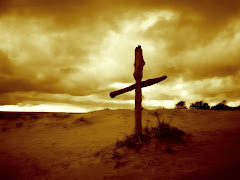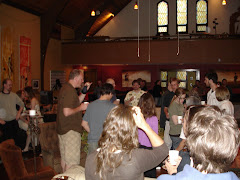Long before there was any talk of a financial crisis or even a pronounced recession, I have maintained that over time churches will simply not be able to sustain the two largest line items in their annual budgets - building expenses and personnel expenses. It's simple math, really. Dwindling membership = fewer dollars in the collection plate. With an average of more than 75% of church revenues coming from members who are over 65 years of age, and fewer and fewer younger folks joining and/or giving, the income well will eventually run dry. Churches and denominations have already been cutting back and tightening their belts for years, but those two beefy line-items are fixed costs. They're non-negotiable...until, that is, the money simply isn't there anymore.
The recent financial crisis - even with the very shaky, unproven bail-out - will hit churches very hard and very quickly, starting with those congregations carrying a lot of building debt. Where do people over 65 get most of their income? Retirement savings and pension plans are often stock market based. Many retirees I know have already lost 1/4th of their portfolios, and experts project that we're nowhere near bottoming out yet. We must keep in mind, also, that retirees don't have the time to hang around until the long-term market patterns of recovery kick in. If you don't think these bleak and on-going financial realities are going to start negatively affecting the income side of church budgets yet this year, I'm going to want to know what you've been smoking.
My point is not to frighten people, nor is it to pronounce more doom and gloom for the institutional Church. Instead, my hope is that congregations will start talking and planning NOW about how to transform themselves into viable, vital mission centers in a fast-approaching, almost unrecognizable future. You can certainly take the conservative approach - as most churches undoubtedly will - and look for other places to cut church expenses, such as programs and mission giving. But if that's the route we take, someone is bound to ask: "Are we even a church anymore when nearly 90% of our budget goes to serving ourselves? Are we really serving God and "the least of these, his children" outside these four walls anymore?"
Be bold enough as your congregation's leaders to ask what your community might look like without its property. Where might we meet for corporate worship? How might we utilize existing facilities in our community - both indoor and outdoor - for our corporate gatherings? How many of our other gatherings really require a building the size of our church building? What would it look like if our pastor(s) found another job and served us in a much more limited capacity? How might we develop lay leadership for some of our most vital ministries? What possibilities would those huge changes (no building expenses and no full-time pastor(s) with benefits) open up for what we could do in Christ's name with our budget dollars?
I recognize how uncomfortable these questions make us traditional church folk. I've been darn near crucified simply for bringing them up! (And don't forget, I, myself, am a full-time pastor with benefits! I stand to lose a lot more than a sentimental attachment to a building if my predictions come true!) But I fully believe that the time is NOW for all of us, no matter how much we've enjoyed or benefitted from the current system, to prepare for a very different future, a future that will either be thrust upon us when we no longer have a choice, or one we can thoughtfully and prayerfully prepare for, now that so many of the signs are pointing to it.
Please join me in this conversation. Let me know that there are folks out there who love God and Christ's mission enough to at least envision a future that, for the Church, may look a lot more like the first century than the twentieth.




















1 comment:
When a commercial bank suffers a sudden rush of withdrawals by depositors, this is called a bank run. Since banks lend out most of the cash they receive in deposits, it is difficult for them to quickly pay back all deposits if these are suddenly demanded, so a run may leave the bank in bankruptcy, causing many depositors to lose their savings unless they are covered by deposit insurance. A situation in which bank runs are widespread is called a systemic banking crisis or just a banking panic. A situation without widespread bank runs, but in which banks are reluctant to lend, because they worry that they have insufficient funds available, is often called a credit crunch.
--------------------------------------------
francis
Link Building
Post a Comment